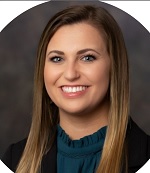Mediate.com and Arbitrate.com believe that the use of NDAs, or not, is an important topic for mediators and arbitrators to confront, so we convened an online colloquium on February 15, 2022 with experts on NDAs to discuss best practices and guidelines for their use.
This online colloquium examined the current use of NDAs in arbitration and mediation and discussed how they can be utilized without crossing any ethical lines. We also discussed the role of legislation and how much party autonomy should govern NDA drafting and use. And we also attempted to identify best practices that mediators and arbitrators can follow to ensure they balance the interests of their parties with the wider public interest.
We hope that you find this article and the recorded NDA Forum to be of great value!
Panelists:
Dr. Julie Macfarlane, University Professor and Professor of Law (Emerita) at the University of Windsor; Co-Founder, Can’t Buy My Silence a global campaign to limit the use of NDAs
Professor Brian Farkas, Cardozo Law School
Jody L. Newman, Employment lawyer/Mediator, of Counsel, Boston Law Collaborative Moderators:
Prof. Nancy Welsh (Professor of Law, Director of Aggie Dispute Resolution Program, Texas A&M University School of Law) and
Prof. Amy Schmitz (Professor of Law, The Ohio State University Moritz College of Law)
Sponsors and Supporters
- Texas A&M University School of Law
- The Ohio State University Moritz College of Law
- Arbitrate.com and Mediate.com
The news these days is filled with stories about nondisclosure statements, or NDAs. Whether it’s a California judge ruling that Google’s NDAs for employees violate labor laws, or Michigan lawmakers signing NDAs ahead of a controversial vote on financial incentives, or a TikTok poster making her friends sign NDAs before she tells them the latest gossip, NDAs have entered the popular culture in a big way. Maybe the anxiety we feel living in an era where our privacy is being whittled away by technology has put a spotlight on NDAs as the only way to make confidentiality legally binding.
This is a long journey from where NDAs started out. NDAs were originally created to protect trade secrets and proprietary information in very specific commercial contexts. But now NDAs have expanded to cover a wide variety of issues, from workplace harassment and discrimination to product liability to commercial settlements. Today, over one-third of the American workforce is bound by a non-disclosure agreement.
NDAs have become widely used for two main reasons. First, they can be indefinite, or essentially forever binding. Second, they can be broad in scope, frequently constraining parties from sharing information even in private contexts. But this expansion of the reach of NDAs has now raised a troubling set of ethical questions about their use: Are there third parties not involved in the agreement who might be adversely affected if information is hidden? Are vulnerable people being told they must agree to sign an NDA as a precondition for resolution, and then being intimidated into lifelong silence, even when they later feel the need to seek help or counseling? Should the public’s right to know be taken into account?
These are important questions for dispute resolution professionals to consider. Many mediators and arbitrators have integrated NDAs into their decisions or settlement agreements, but there has been little discussion of the ethical considerations that go along with the use of NDAs in dispute resolution.
The law on NDAs is still unsettled. Courts have ruled that NDAs should be “. . . narrowly tailored to protect the legitimate business interests” or the employer. Overly broad language in the agreements may render them unenforceable. If the language does not “reasonably serve the legitimate interests of the employer,” it probably will be seen as too restrictive.
As Amy Schmitz put it in “confidentiality clauses may be overly oppressive where they hinder the public’s access to information impacting health and safety. These clauses also are problematic when they impede individuals’ abilities to obtain information regarding prior claims that they may need to prove patterns of discrimination or other legal violations they may need to succeed on statutory claims. It is in these cases that courts have held such agreements unconscionable or otherwise unenforceable under contract law defenses. This is especially true when there is uneven bargaining power, such as in consumer and employment contexts.” (“Assuming Silence in Arbitration,” New Jersey Lawyer Magazine, 2011).
The South Carolina Court of Appeals ruled in 2017 that language in non-disclosure agreements could be so broad that the agreement effectively becomes an invalid non-compete agreement. Fay v. Total Quality Logistics, LLC, 419 S.C. 622 (S.C. Ct. App. 2017). If, for example, an employment agreement says the employee can never disclose any information which the employee had access to during the period of employment, then that employee will find it very difficult to ever work in the same industry again without broaching the agreement. A similar sentiment was voiced in Merrill Lynch, Pierce, Fenner & Smith, Inc. v. Dewey, 18 Mass. L. Rptr. 49 (Super. Ct. 2004), where the Court focused on how nondisclosure agreements cannot prevent the solicitation of customers known to the restricted party, arguing that NDAs that do are so overly broad that they effectively become a non-solicitation agreement.
The First Circuit provided more clarity on non-disclosure agreements in TLS Mgmt. & Mktg. Servs., LLC v. Rodriguez-Toledo, 2020 WL 4187246 (1st Cir. July 21, 2020). The Court noted that “a nondisclosure agreement is overly broad and invalid when the agreement prohibits disclosure of information that is not in fact confidential, because it’s public knowledge.” The Court went on to further discuss two other situations where non-disclosure agreements are overly broad. First, overly broad agreements occur when the agreement extends to information properly provided by third-party sources to the defendant. Second, if the restriction is “‘[un]necessary for the protection of the employer’s business,’ ‘reasonably restrictive of the employee’s rights,’ and ‘prejudicial to the public interest,’” the agreement is overly broad. Further, covenants that are restrictive must be narrowly tailored while bearing a reasonable relationship to the legitimate business interests of an employer.
Most notable about the First Circuit’s decision was language in a footnote hinting that revising overly broad provisions can be contrary to public policy. The Court however noted that [overbroad nondisclosure agreements] “raise the same policy concerns about restraining competition as noncompete clauses where, as here, they have the effect of preventing the defendant from competing with the plaintiff.” Other U.S. courts have followed TLS Mgmt. & Mktg. Servs. by applying the same standard to other restrictive covenants.
These decisions have largely focused on commercial NDAs, but they signal a willingness to rein in the most egregious abuses. Legislators have also begun to notice this issue as well, and they are proposing bills to constrain the scope of NDAs. Prince Edward Island in Canada became the first province to place restrictions on NDAs, proposing a bill that explicitly prohibits the use of NDAs to keep individuals from reporting unlawful actions. California recently enacted a similar law, barring settlement agreements from containing nondisclosure agreements preventing the disclosure of facts related to claims of sexual harassment and sex discrimination. Further, the House Judiciary Committee recently advanced legislation to end forced arbitration in lawsuits involving sexual assault and harassment claims. The Ending Forced Arbitration of Sexual Assault and Sexual Harassment Act of 2021 is a bipartisan bill that would dramatically change the landscape of sexual harassment disputes in the workplace. If passed, this law would allow many employees to sue for workplace sexual misconduct by prohibiting the enforcement of mandatory arbitration clauses. More may be coming soon.






